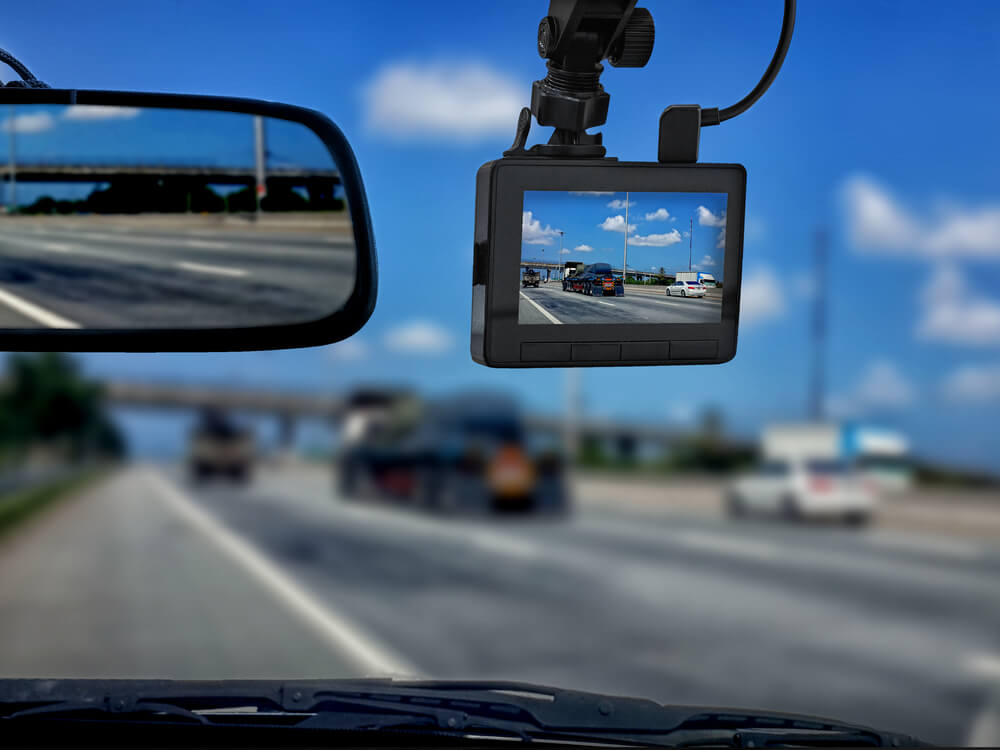Dash cams, or dashboard cameras, have become increasingly popular tools for drivers. These small cameras provide a continuous recording of the road ahead, potentially offering vital evidence in the event of accidents, traffic disputes, or insurance claims. While dash cams are a valuable asset for many drivers, it’s important to understand the regulations surrounding their use in Virginia to ensure their legal and responsible operation.
The Legality of Dash Cams in Virginia
Virginia has no specific laws explicitly prohibiting the use of dash cams in private vehicles. This means, in general, you are permitted to install and operate a dash cam in your car. However, there are nuances regarding the placement of dash cams to ensure the device does not obstruct the driver’s vision, as this would be a safety violation.
Placement Restrictions for Dash Cams
The critical factor concerning dash cams in Virginia is where you mount the camera. Virginia law prohibits any objects that might obstruct the driver’s view through the front windshield. To comply with these regulations, dash cams must be placed in an area that does not interfere with the driver’s line of sight.
Here are accepted mounting guidelines:
- Behind the Rearview Mirror: This is a common and unobtrusive location that complies with regulations.
- Lower Corner of the Windshield: Cameras can be mounted within a small zone in either the lower driver-side or passenger-side corner of the windshield. Ensure the camera size doesn’t create a significant blind spot.
- Dashboard Mount: A dashboard mount can be a viable option provided it does not obstruct your view in any way.
Note: Suction cup mounts are generally allowed as long as they don’t create an impairment to safe driving.
Audio Recording Considerations
While dash cams often have audio recording capabilities, Virginia has specific laws about recording conversations without consent under its “two-party consent” law. This means that if you wish to record audio along with video, you must inform all individuals within the vehicle that they are being recorded. Failure to do so carries potential legal consequences.
Many dash cams have the option to disable audio recording. Disabling this feature is the simplest way to ensure you are in compliance with Virginia’s two-party consent law.
Using Dash Cam Footage as Evidence
Dash cam footage can be incredibly valuable as evidence in several situations:
- Insurance Claims: In the case of an accident, dash cam footage can provide clear evidence of how the accident occurred, helping to determine fault and streamline the insurance claim process.
- Traffic Disputes: If you are issued a traffic ticket, dash cam footage may provide the context necessary to contest the violation in court.
- Incidents of Road Rage or Aggressive Driving: Dash cam footage acts as a crucial documentation tool should you encounter unsafe driving by others.
- Recording Criminal Activity: Footage from your dash cam might capture unlawful actions happening on the roads or in parking lots. This evidence could be helpful for police investigations.
Additional Factors and Best Practices
- Choosing the Right Dash Cam: Consider features like video resolution (1080p minimum recommended), storage capacity, night vision, and file saving intervals.
- Maintain Your Dash Cam: Regularly check your dash cam to ensure it is functioning properly with a clean lens and a secure mount.
- Review Footage: Be sure to review footage periodically, especially in the event of unexpected incidents.
- Privacy Considerations: If your dash cam captures footage of other vehicles, license plates, or conversations, be mindful of the privacy of others.
FAQs About Dash Cams in Virginia
- Can I mount my dash cam anywhere on the windshield? No. Mounting is restricted to areas that do not block the driver’s critical view of the road.
- Can I use a dash cam that has a video screen? Yes, but Virginia law (§ 46.2-1077) forbids drivers from watching “moving images” while the vehicle is in motion. Either disable the screen while driving or position it where it won’t distract you.
- Are dash cams legal for commercial vehicles in Virginia? Yes, although companies should establish clear policies for dash cam usage, data storage, and employee notification to protect themselves and their drivers.
- Can dash cam footage be used against me? While typically beneficial to your legal case, if your driving behavior contributed to an accident, the footage could work against you. Drive responsibly at all times.
Conclusion
Dash cams offer a wide range of benefits for Virginia drivers, providing a valuable layer of protection on the road. By understanding the placement guidelines, audio recording considerations, and potential uses for footage, you can confidently use a dash cam while respecting regulations and ensuring its effective operation. Remember, responsible driving practices are always the best safety measure.
Sources
- Rutter Mills Law Firm: Can Dash Cam Video Be Used as Evidence in Virginia?: https://www.ruttermills.com/resource/car-accident-info/can-dash-cam-video-be-used-as-evidence-in-virginia/
- The Joel Bieber Firm: Dash Cam Laws Virginia: Drivers Should Know: https://joelbieber.com/car-accidents/dash-cam-laws-virginia/
- [Allen & Allen law firm: Virginia dash cam laws] (https://www.allenandallen.com/what-you-need-to-know-about-dash-cams-in-virginia/)
- McDonald Injury Law: Do I Need a Dash Cam in My Vehicle in Virginia?: https://www.mcdonaldinjurylaw.com/blog/auto-accident-news/do-i-need-a-dash-cam-in-my-vehicle-in-virginia/
- BlackboxMyCar: Are Dash Cams Legal in My Area? Dash Cam Laws in Every US State: https://www.blackboxmycar.com/pages/are-dash-cams-legal-in-my-area-dash-cam-laws-in-every-us-state
Disclaimer: This article provides general information on dash cam laws in Virginia. Legal regulations can change, and it’s always recommended to consult with an attorney if you have specific legal questions or concerns about dash cam use.



